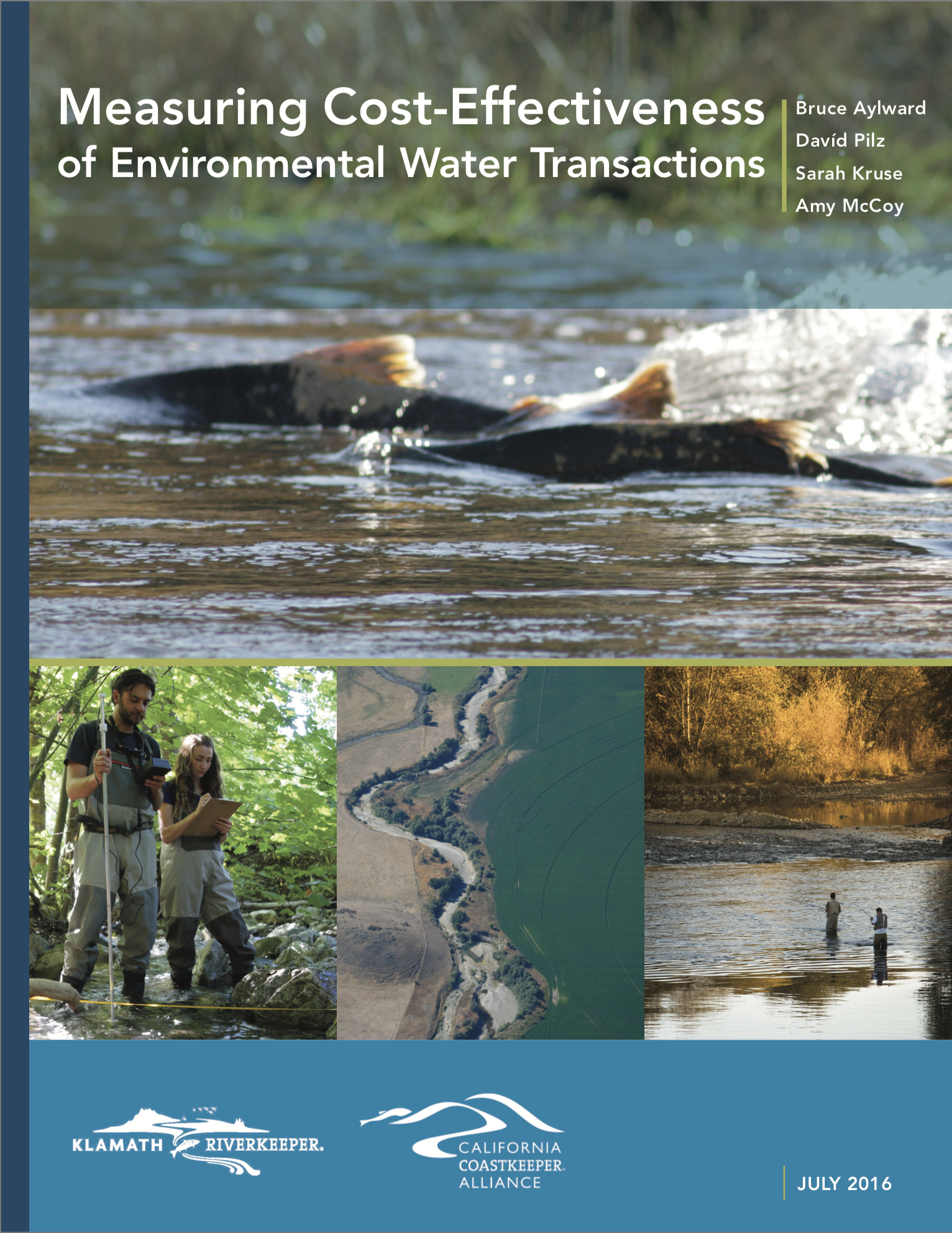Cost-Effectiveness of Environmental Water Transactions
This project began with funding from the Pisces Foundation to develop metrics for assessing cost-effectiveness of environmental water transactions in an effort to create standards and protocols for adoption as part of the California Water Bond process and by other regional transaction efforts. Subsequently, as part of a collaborative effort with the Science, Nature and People Program at the National Center for Ecological Analysis and Synthesis at University of California at Santa Barbara, AMP Insights developed an application of the cost-effectiveness approach for the Whychus Creek in the Deschutes Basin of Central Oregon. A prototype cost-effectiveness tool and dashboard was then applied, along with the development of a user manual, working with the Shasta River Program of The Nature Conservancy-California Chapter and the Scott River Water Trust.
Client Klamath Riverkeeper
Additional Information Read the report

